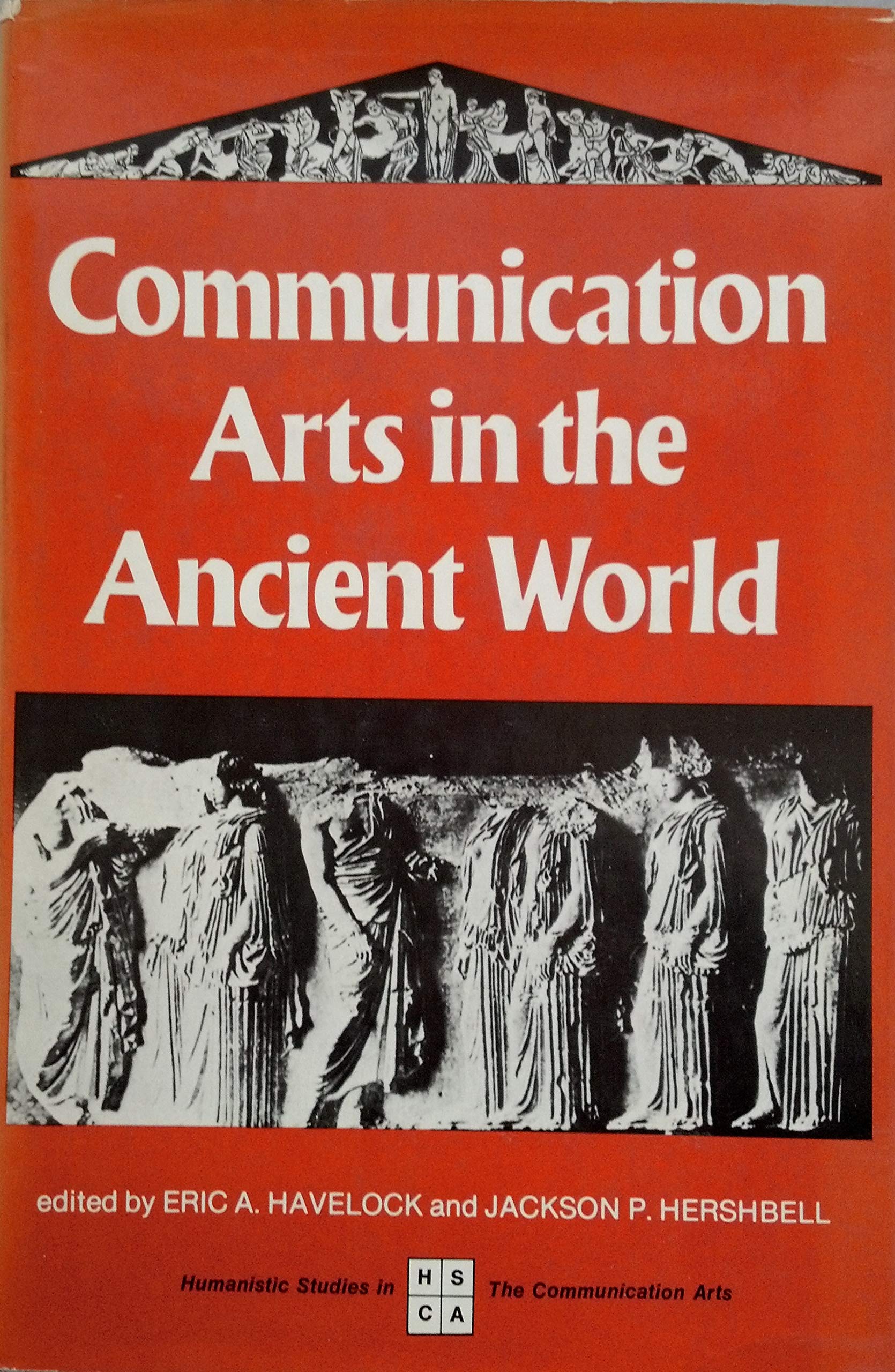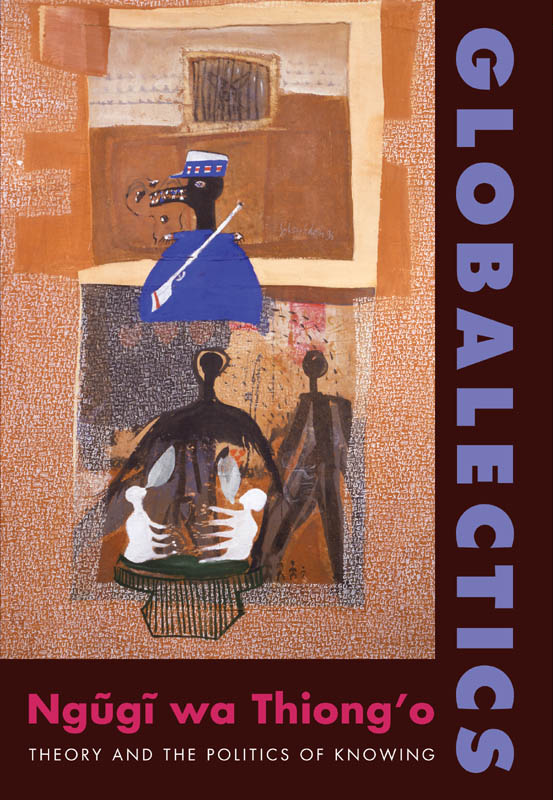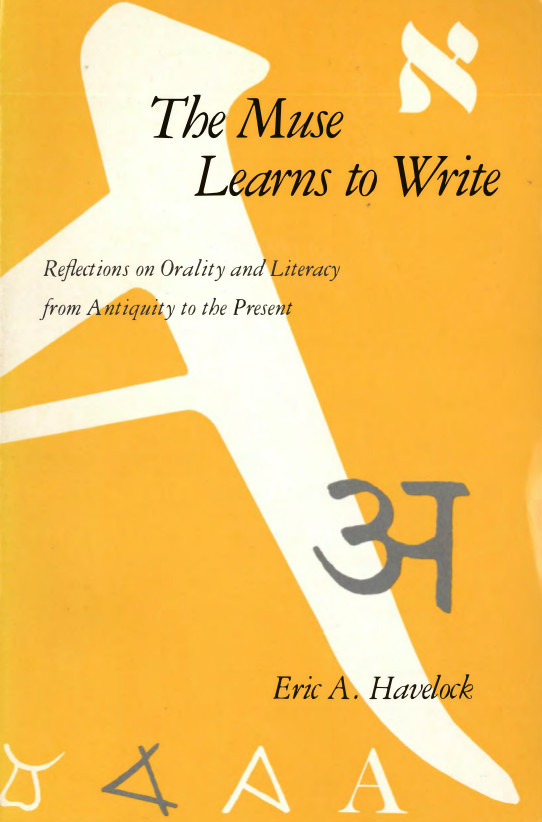Eric A. Havelock, Jackson P. Hershbell (eds.): Communication Arts in the Ancient World (1978)
Filed under book | Tags: · alphabet, antiquity, communication, literacy, media, media history, oral culture, orality, poetry

A collection of ancient studies “devoted to exploring the beginnings of literacy in ancient Greece and Rome, and the effects of writing on these cultures.”
Publisher Hastings House, New York, 1978
ISBN 0803812523, 9780803812529
xiv+162 pages
Review: H. Curtis Wright (Journal of Library History, 1980).
PDF (19 MB)
Comment (0)Ngũgĩ wa Thiong’o: Globalectics: Theory and the Politics of Knowing (2012)
Filed under book | Tags: · africa, dialectic, globalisation, knowledge, literary criticism, literary theory, literature, neocolonialism, orality, politics, postcolonialism, theory

“A masterful writer working in many genres, Ngũgĩ wa Thiong’o entered the East African literary scene in 1962 with the performance of his first major play, The Black Hermit, at the National Theatre in Uganda. In 1977 he was imprisoned after his most controversial work, Ngaahika Ndeenda (I Will Marry When I Want), produced in Nairobi, sharply criticized the injustices of Kenyan society and unequivocally championed the causes of ordinary citizens. Following his release, Ngũgĩ decided to write only in his native Gikuyu, communicating with Kenyans in one of the many languages of their daily lives, and today he is known as one of the most outspoken intellectuals working in postcolonial theory and the global postcolonial movement.
In this volume, Ngũgĩ wa Thiong’o summarizes and develops a cross-section of the issues he has grappled with in his work, which deploys a strategy of imagery, language, folklore, and character to ‘decolonize the mind.’ Ngũgĩ confronts the politics of language in African writing; the problem of linguistic imperialism and literature’s ability to resist it; the difficult balance between orality, or ‘orature’, and writing, or ‘literature’; the tension between national and world literature; and the role of the literary curriculum in both reaffirming and undermining the dominance of the Western canon. Throughout, he engages a range of philosophers and theorists writing on power and postcolonial creativity, including Hegel, Marx, Lévi-Strauss, and Aimé Césaire. Yet his explorations remain grounded in his own experiences with literature (and orature) and reworks the difficult dialectics of theory into richly evocative prose.”
Publisher Columbia University Press, New York, 2012
Wellek Library Lectures in Critical Theory series
ISBN 9780231159500, 0231159501
xi+104 pages
Reviews: Publishers Weekly (2011), Corbin Treacy (Transnational Lit, 2012), Danson Kahyana (Slip, 2012), Geoff Wisner (Words Without Borders, 2012), M.A. Orthofer (Complete Rev, 2012), Jenna N. Hanchey (E3W Rev of Books, 2013), Devin Zane Shaw (Society+Space, 2013), Magalí Armillas-Tiseyra (E-Misférica, 2014), Oliver Lovesey (Cambridge J Postcolonial Lit Inquiry, 2014), Ndiritu Wahome (2016).
Comment (0)Eric A. Havelock: The Muse Learns to Write: Reflections on Orality and Literacy from Antiquity to the Present (1986–) [EN, ES]
Filed under book | Tags: · greece, literacy, orality, rhetoric, writing

“When oral culture becomes literate, in what way does human consciousness itself change? And how does the new form of communication affect the content and meaning of texts? In this book, one of the most original and penetrating thinkers in Greek studies describes the transformation from orality to literacy in classical times and reflects upon its continued meaning for us today.”
Publisher Yale University Press, 1986
ISBN 0300037414, 9780300037418
144 pages
via x
Reviews: Richard Leo Enos (Rhetoric Society Quarterly 1987), T. J. Winnifrith (Classical Review 1988), Elizabeth Duke (Phil & Lit 1990), J.M. Foley (Choice, n.d.).
The Muse Learns to Write (English, 8 MB)
La musa aprende e escribir (Spanish, trans. Luis Bredlow Wenda, 1996, 3 MB)

